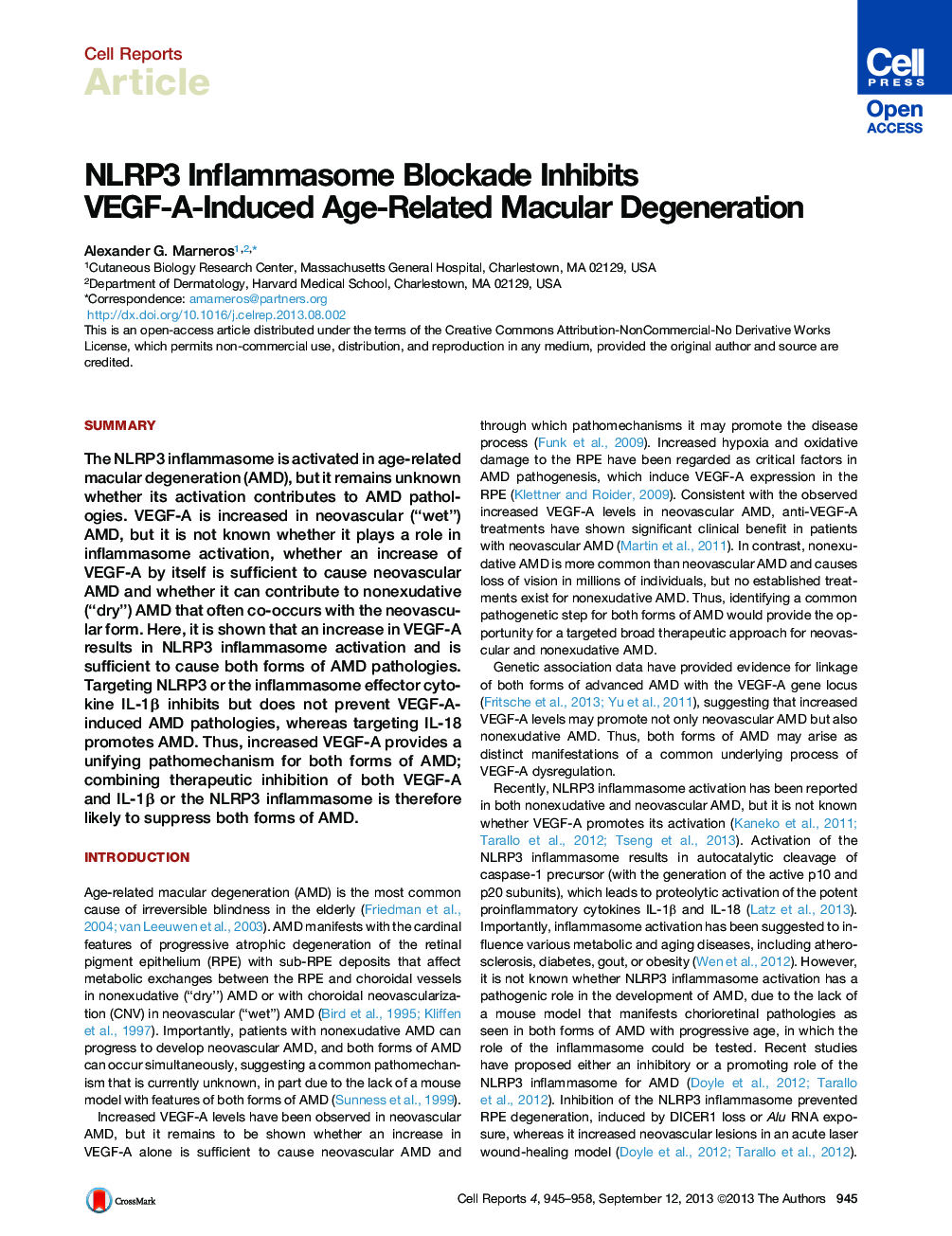| کد مقاله | کد نشریه | سال انتشار | مقاله انگلیسی | نسخه تمام متن |
|---|---|---|---|---|
| 2040809 | 1073130 | 2013 | 14 صفحه PDF | دانلود رایگان |

• Increased VEGF-A is sufficient to cause cardinal features of both “wet” and “dry” AMD
• VEGF-A-induced RPE/choroid abnormalities activate the NLRP3 inflammasome
• NLRP3 inflammasome blockade inhibits, whereas IL-18 blockade promotes, VEGF-A-induced AMD
• Macrophages promote wet AMD through the activation of proangiogenic retinal glia cells
SummaryThe NLRP3 inflammasome is activated in age-related macular degeneration (AMD), but it remains unknown whether its activation contributes to AMD pathologies. VEGF-A is increased in neovascular (“wet”) AMD, but it is not known whether it plays a role in inflammasome activation, whether an increase of VEGF-A by itself is sufficient to cause neovascular AMD and whether it can contribute to nonexudative (“dry”) AMD that often co-occurs with the neovascular form. Here, it is shown that an increase in VEGF-A results in NLRP3 inflammasome activation and is sufficient to cause both forms of AMD pathologies. Targeting NLRP3 or the inflammasome effector cytokine IL-1β inhibits but does not prevent VEGF-A-induced AMD pathologies, whereas targeting IL-18 promotes AMD. Thus, increased VEGF-A provides a unifying pathomechanism for both forms of AMD; combining therapeutic inhibition of both VEGF-A and IL-1β or the NLRP3 inflammasome is therefore likely to suppress both forms of AMD.
Graphical AbstractFigure optionsDownload as PowerPoint slide
Journal: - Volume 4, Issue 5, 12 September 2013, Pages 945–958